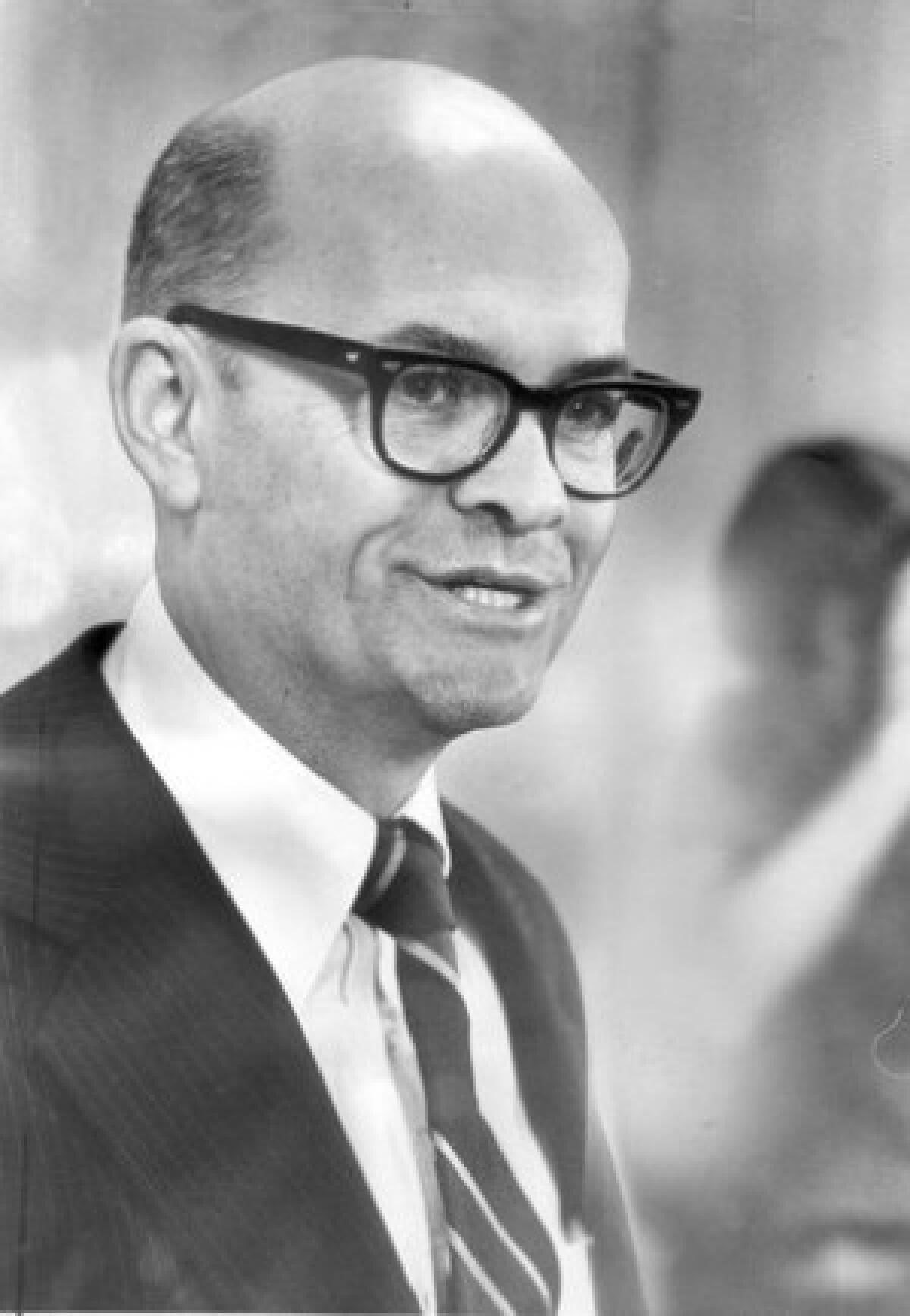Claude S. Brinegar dies at 82; former oil executive and Cabinet secretary

- Share via
Claude S. Brinegar, a former oil industry executive and the nation’s third transportation secretary, who helped enact the controversial 55-mph speed limit during the Arab oil embargo in the 1970s, died of natural causes Friday at a retirement community in Palo Alto, according to his family. He was 82.
Named to the post in late 1972, Brinegar succeeded John A. Volpe in President Nixon’s Cabinet. After Nixon resigned, he served under President Ford for several months before returning to work in the private sector in 1975.
Brinegar was one of several executives from private industry who were recruited for Cabinet posts at the start of Nixon’s second term. A senior vice president of the Union Oil Co. of California who headed the firm’s Union 76 division, he had no previous government experience but had a doctorate in economics from Stanford and was considered a gifted executive.
When asked about his qualifications, he stressed his experience as a consumer: “I’ve flown a million miles in the last seven years, and I’ve sat on the Harbor Freeway for hours in traffic jams,” Brinegar, who lived in the Los Angeles area for many years, told The Times in 1973.
Of the decisions he made as transportation chief, perhaps none stirred as much antipathy as his endorsement of the national 55-mph speed limit. He urged Americans frustrated by long lines at the gas pump to embrace “the ethic of energy conservation” through the lower speed limit, which government analysts said would reduce gas consumption by 200,000 barrels a day.
He helped head off a threatened blockade of Washington by irate independent truckers. But the 55-mph standard was widely unpopular and largely ignored by motorists. Gas savings were found to be minimal, according to studies, and the law was repealed in 1995.
Brinegar’s appointment had been criticized by environmental and consumer groups, which questioned his commitment to public transportation. One of his chief legislative accomplishments, however, was passage of the Federal-Aid Highway Act of 1973, which paid for a national scenic highway program and authorized states to use a portion of their highway trust fund for public transit.
He also helped lay the groundwork for legislation to restructure Penn Central, the railroad that declared bankruptcy in 1970 and was eventually folded into a new system called Consolidated Rail Corp., or Conrail.
He served on its board during the 1990s and remained a director for three years after it was acquired by CSX Transportation in 1999.
Brinegar was born in Rockport, Calif., on Dec. 16, 1926. He served in the Army Air Forces in Japan and Korea from 1945 to 1947 before completing his studies at Stanford, where he earned a bachelor’s degree in economics in 1950, a master’s in statistics in 1951 and a doctorate in applied economics in 1954.
He joined Union Oil as an economic analyst in 1953. As vice president for corporate planning, he managed the merger between Union Oil and Pure Oil Co. in 1965 and later served as president of Union’s Pure Oil division until 1968. He later served on the boards of Union Oil and its holding company, Unocal.
In his spare time, Brinegar collected first editions of works by Mark Twain and other Twain memorabilia.
Brinegar, who retired to Palo Alto in 1992, is survived by his third wife, Karen Bartholomew, whom he married in 1995 after the death of his second wife, Mary Katharine Potter. He also leaves three children from his first marriage to Elva Jackson: Claudia Berglund of Huntington Beach, Meredith Cross of Washington, D.C., and Thomas Brinegar of Cody, Wyo.; and four grandchildren.
Memorial donations may be sent to the Mark Twain Studies Center, Elmira College, 1 Park Place, Elmira, NY 14901, or the Mark Twain House, 351 Farmington Ave., Hartford, CT 06105.
More to Read
Start your day right
Sign up for Essential California for the L.A. Times biggest news, features and recommendations in your inbox six days a week.
You may occasionally receive promotional content from the Los Angeles Times.








